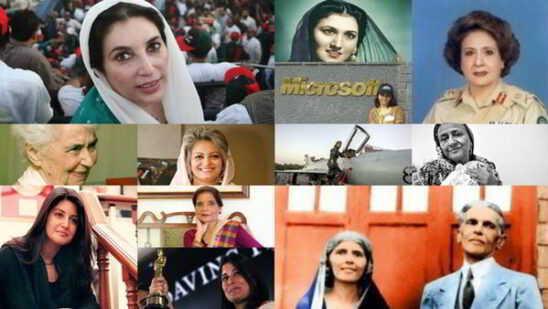
Ever since the War on Terror started after 9/11, Pakistan has been a controversial state. In the midst of all this, many aspects of the country have been misrepresented. At the forefront of this is the position of women, the consensus seems to be that women are oppressed and suppressed. However, history shows evidence of women who have played a vital role in leading the country, transforming ideologies, and making a difference for their people. Here is a list of 15 women that changed Pakistan forever:
15. Malala Yousafzai
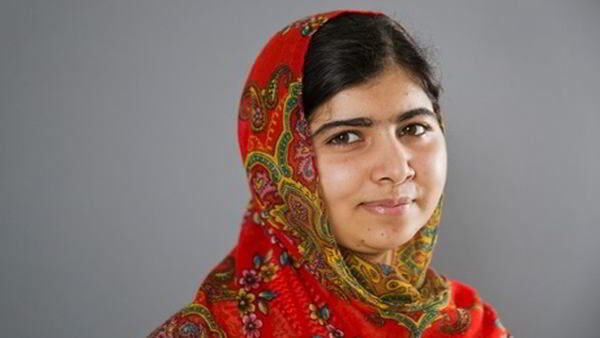
Photograph: Fabio De Paola
A prominent international public figure, Malala Yousafzai is a student and educational activist, she hails from the Swat region which is part of the North-Western Frontier Province. The Swat region was known as a breeding ground for the Taliban, it remained one of the few places in Pakistan where the Taliban yielded significant power. The Taliban imposed a set of rules in the region of Swat, one of which prohibited the education of girls. Malala has always been a staunch supporter of female education, and as we know she wrote a blog for BBC highlighting the treachery of the Taliban under a pseudonym.
On the afternoon of October 9th, 2012, Malala was reportedly boarding a school bus when an assailant entered the bus and asked for her specifically. She was shot in the head, with the bullet traveling under the length of her skin and entering her shoulder. She was rushed to the hospital where she remained in critical condition, thankfully her situation improved and she was shifted to England for intensive rehabilitation.
Despite several controversial statements from Malala and her father that irked many Pakistanis, she has emerged as a symbol for female education in Pakistan. Her endeavors in education have sparked much debate on Pakistan’s education structure, with a bill even being discussed in the NA. She still faces much opposition from the Taliban but has seen overwhelming support from all religious groups in the country.
Malala’s story is still riddled with controversy in the country (with a fair share of conspiracy theorists speculating that she is an agent from the West due to her controversial statements and the widespread attention given to her in the Western world), but she has helped in creating awareness for education in Pakistan, importantly at a global level.
14. Musarrat Misbah
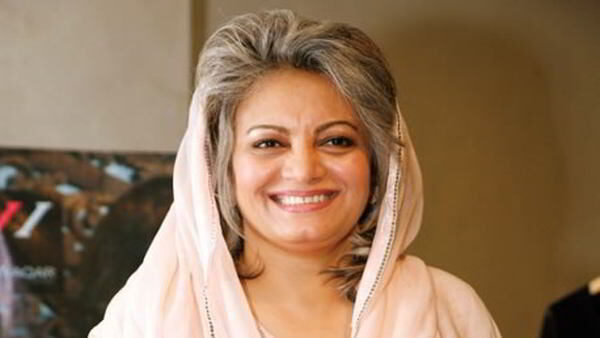
Widely regarded as one of the most skillful and respected stylists in the country, Musarrat Misbah has transformed the lives of scores of women. Renowned for her unique and innovative makeup techniques, Musarrat opened her own beauty salon “Depilex” in 1980. She soon garnered much fame and was the face of Pakistani fashion, featuring in many advertising campaigns and organizing international fashion shows.
But it is not her beauty salon that has changed the lives of legions of women, that honor is bestowed upon her due to the Smile Again Foundation. The Smile Again Foundation is an NGO opened to rehabilitate women who are victims of acid and kerosene attacks. It aims to help women recover and become productive members of society. The survivors of the acid attacks either work as employees of Depilex or are helped with job placements, additionally, their medical expenses are entirely covered.
The foundation also aims to raise awareness of violence against women, it works with the government to implement and enforce proper legislation. The foundation has created a volunteer support group, which further helps in the rehabilitation of acid attack victims. Apart from helping them find and re-invigorate themselves, the organization also pays for expensive facial reconstruction surgeries. Musarrat Misbah was honored with the Pride of Performance award by the President of Pakistan for her humanitarian services.
13. Sharmeen Obaid Chinoy
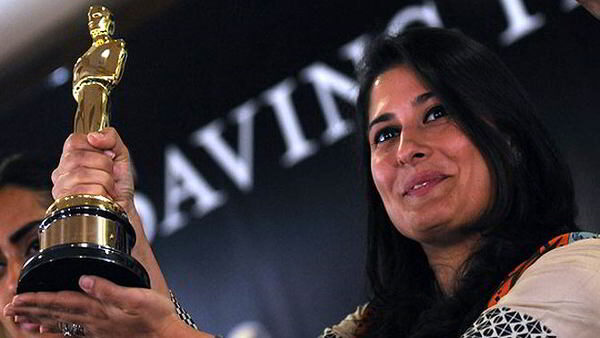
Photo by AFP
Born in the largest city in the country, Sharmeen had an interest in investigative journalism from a very young age. In an interview she revealed that she was always drawn to covering the weakest in the community, she felt as though she was the voice for the voiceless.
She soon tested the waters of filmmaking, particularly documentaries. It was here that she took the most significant strides in her career. Her first documentary entitled “Lifting the Veil”, released in 2007 brought much critical acclaim from reputable critics from across the globe. However, her 2012 documentary entitled Saving Face was the main reason she was brought to superstardom and gained the attention of mainstream media.
She won an Oscar for ‘Saving Face’ and in the process became the first Pakistani to ever be endowed with that honor. Previously in 2010, she won an Emmy for her documentary, Pakistan: Children of Taliban. Sharmeen in addition to this has won scores of journalism awards; the graduate from Karachi Grammar School was also bestowed with the Hilal-e-Imtiaz for her contribution to the field of filmmaking.
12. Namira Salim
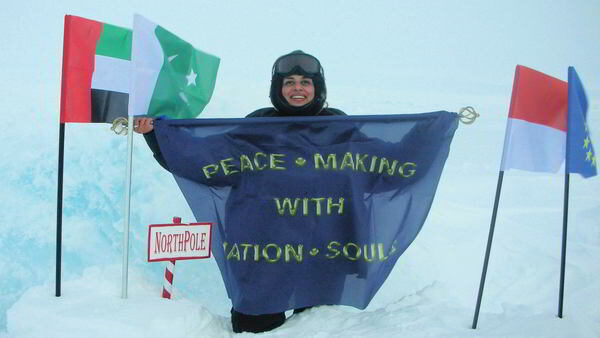
Namira Salim is a Pakistani explorer who has, through the years chartered numerous territories that no Pakistani before her ever has. Known as an explorer and an artist, Namira holds the unique distinction of being the first Pakistani, male or female, to have traveled to both the North Pole and the South Pole.
Another feather to Namira’s cap was added when she skydived from Mount Everest, in the process of becoming the first Asian and the first Pakistani to achieve such an endeavor. Furthermore, she was the only Pakistani member of the Sir Richard Branson Virgin Galactic, a commercial space liner, hence she holds the honor of being the first Pakistani to venture into space (Pakistani media dubbed her as the ‘the first Pakistani astronaut’).
In addition to these, she has achieved great fame in the field of art, with her art highlighting notable global issues at UN and UNESCO summits. Due to her exploits in the fields of adventure, art, and aviation, she was honored with the ‘Medal of Excellence’ by President Zardari.
11. Zubaida Tariq
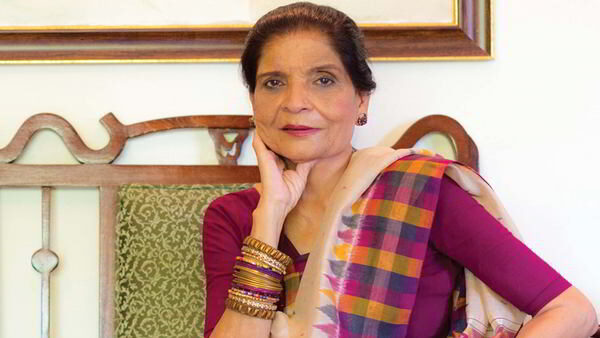
Photo by Jaffer Hasan
Affectionately known as Zubaida ‘Apa’, Zubaida Tariq has been a mainstay in mainstream Pakistani media for decades now and has been responsible for introducing the cooking shows and tips craze in the television industry of Pakistan. Apart from her numerous television roles, Zubaida Apa is instantly relatable to many viewers due to what she calls her ‘Totkas’. These are her everyday tips to combat several everyday problems, whether it is an illness or a matter related to cuisine, that has wowed audiences of all ages.
She started her career at the ripe age of fifty, according to those who know her personally; she was inept at cooking at the time of her marriage. It then came as quite a shock to her peers that the girl who struggled to make plain rice now had the distinct honor of being Pakistan’s favorite celebrity chef. She has extensively been covered in the nation’s biggest and top media outlets; she even owns her own catering business which has garnered great success.
The renowned chef and cooking expert is currently plying her trade in Masala TV. She was recently diagnosed with Parkinson’s disease and has written a memoir, detailing her battle with Parkinson’s in her everyday life.
10. Nazia Hassan
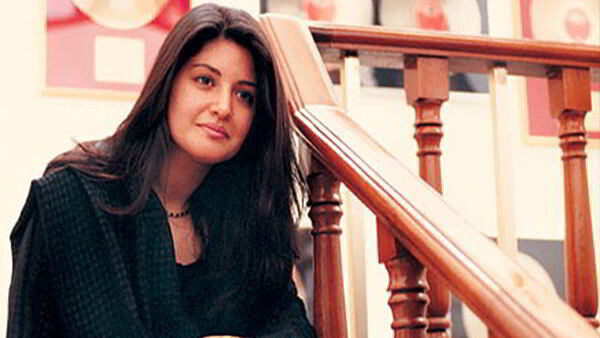
Nazia Hassan is the embodiment of the eighties youth and the progressive and differing culture of Pakistan. If you were a teenager growing up in that era of Pakistan, it is highly unlikely that you haven’t jammed to a Nazia Hassan song. Music has always been a tool that unites the masses towards a common goal; inversely it can also revolutionize thinking and perception. How can we forget Elvis and his gyrating hips? How he shredded people’s belief in the ordinary, it would be wise to state that Nazia Hassan was the Elvis of Pakistan.
Popular at the time when women in music were looked upon as an abhorrent concept, where musicians were viewed as degenerates and their craft deemed un-Islamic. Nazia Hassan changed all of that for the country, her girlish charm and powerful voice shot her to stardom. She was the undisputed Queen of Pop in Pakistan, her debut album Disco Deewane was the best-selling pop record in Asia at the time.
Tragically she fell victim to lung cancer and succumbed to the illness in August 2000, although she showed signs of mild recovery, it was not enough to save her in the end. She remains one of the most popular singers in the history of Pakistan; she single-handedly transformed the perception of the populous and propagated a message of peace.
Her memory lives on with the Nazia Hassan Foundation, which aims to help people of all nationalities and backgrounds. The foundation aims to help the downtrodden; it works on the principle of intermixing individuals in different countries. The foundation carries the belief of Nazia that only through co-existence can we learn to respect and love our fellow man.
9. Ruth Pfau
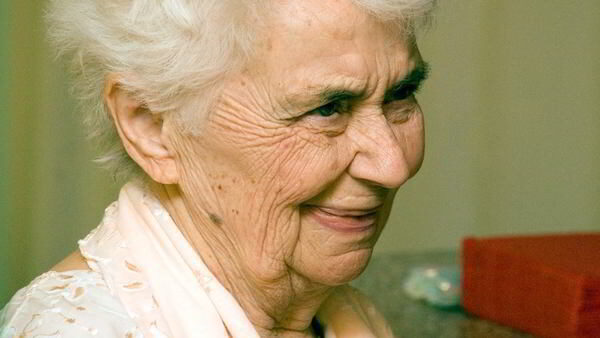
A nun and a member of the Society of Daughters of the Heart of Mary, Ruth Pfau was born in East Germany in 1929. After the Second World War, she along with her family fled from their home to West Germany after the Russian occupation. She studied medicine in Mainz, however failing to see a sense of purpose and direction in her life, she moved to Pakistan.
After visiting a leprosy colony in Karachi in 1960, she decided that fighting leprosy was her calling; hence she devoted her entire life to helping eradicate the disease in Pakistan. She initially treated patients in a hut in a slum quarter, but in 1963 she began treating patients from around the country after buying a clinic.
She traveled back and forth between Pakistan and Germany, collecting donations and training volunteer workers. She journeyed to remote places in the country that were devoid of infrastructure facilities and trained personnel. Officially becoming a Pakistani citizen in 1988, she received numerous civilian awards for her humanitarian efforts. Ranging from the Hilal-e-Pakistan to the Nishan-e-Quaid-e-Azam, Ruth Pfau has been honored extensively for her lifetime of service.
It is due to her work with leprosy that Pakistan has become one of the first countries in Asia to control leprosy, as announced by the WHO. Due to her lifetime efforts in eradicating leprosy and other ailments, she is affectionately known as Pakistan’s Mother Teresa.
8. Arfa Karim

Known in IT circles as a prodigy, Arfa was heralded for her genius not only by the people of Pakistan but also on the international stage. Born in Faisalabad in 1995, Arfa became the youngest certified Microsoft professional in 2004, at the tender age of 9. Taking part in numerous international forums brought her to the attention of the mainstream media.
She was written extensively in numerous respected blogs and was also interviewed by local newspapers. She became the youngest Pakistani in history to win a Pride of Performance award, a presidential honor that is given out to individuals who excel in their field.
Tragically in 2011, Arfa Karim suffered an epileptic seizure which was followed by a massive heart attack. Bill Gates personally paid for her medical expenses and he organized a panel of international medical professionals who consulted with local doctors.
However, her condition worsened in the hospital, and on the morning of the 14th of January 2012, she passed away. The chief minister of the country named a technology park in her honor, The Arfa Karim Software Technology Park.
7. Noor Jehan
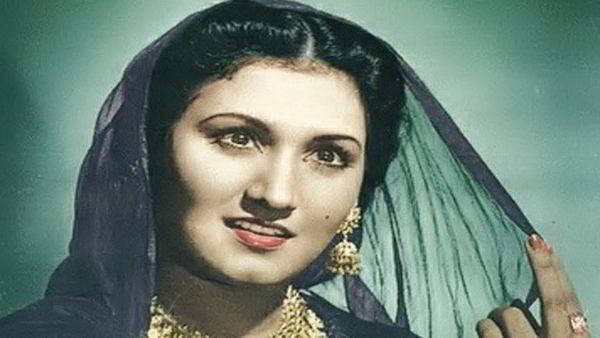
Noor Jehan was the adopted stage name for Allah Wasai, a singer and actress who gained prominence in British India. The earliest movies in the Pakistan film industry have been graced by Noor; she also holds the unique distinction of being the first female director in the history of the country.
After the partition of India in 1947, Noor Jehan along with her family shifted to the city of Karachi from Bombay. She was born into a family of talented musicians and was groomed from a very young age to enter the music industry. She was trained in classical dance and spoke a wide range of languages, but it was acting that was her real passion.
After the partition, she acted in and co-directed Chan Wey, a Punjabi movie. She garnered great fame as a result of her role in this picture, she was to only strengthen her reputation with movies that proceeded.
Noor Jahan’s famous national songs of the 1965 war “Ae Rah-e-Haq Ke Shaheedo” and “Ae Watan Ke Sajeelay” are considered to be a major morale booster for heavily outnumbered Pakistani soldiers during the great battles fought in the 1965 war with India.
After a rocky marriage, she was allegedly involved in several affairs, one amongst them with a famous cricket player. The burden of acting and her personal life became too much for her, causing her to retire in 1963.
Following a career that spanned seven decades, Noor Jehan became one of the most famous singers in Pakistan’s history. Recording over 10,000 songs in different languages, she was given the title of the “Malika-e-Taranum (Queen of Melody)”. She is also a record holder for recording the highest number of film songs in Pakistani cinematic history.
6. Bilquis Edhi
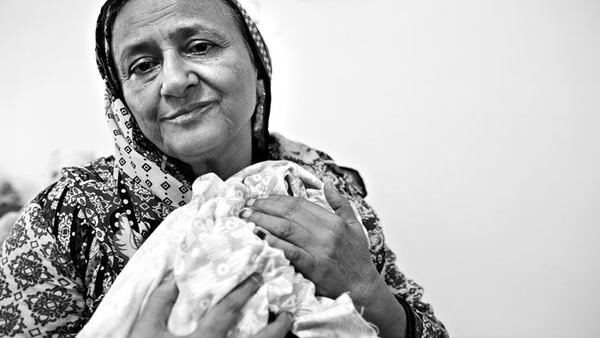
Bilquis Edhi the wife of the famous Abdul Sattar Edhi has earned a special place in Pakistani society. A nurse by profession, she is revered for her philanthropic work, the crown jewel of it being the Bilquis Edhi Foundation. Born in the largest city in the country, Bilquis’s charity ran a wide array of services in the city of Karachi, from a volunteer ambulance service to a hospital that she ran in tandem with her husband. The Bilquis Edhi Foundation has at the time of writing been able to save up to 16,000 abandoned babies across the country.
What has widely been considered her most groundbreaking work to date is the ‘Jhoola Project’ (Swing Project) that she oversaw. Although it was started originally by her husband, Bilquis has now taken over the reins and as mentioned above has helped abandoned babies across the country.
The Jhoola Project fundamentally uses a jhoola (swing), as a medium to drop off babies by couples who either don’t have the means or interest to raise them.
She has been the recipient of a lot of awards in her lifetime, receiving honors from the President in 2007, who went on to donate money to the charity from his income. Furthermore, Bilquis has been praised across all spheres for not discriminating against patients based on any ethnic or religious factors.
What probably is the most amazing thing about her is that, even though she has been showered with all sorts of fame and adoration, she lived modestly in a two-room apartment with her husband.
5. Ra’ana Liaquat Ali Khan
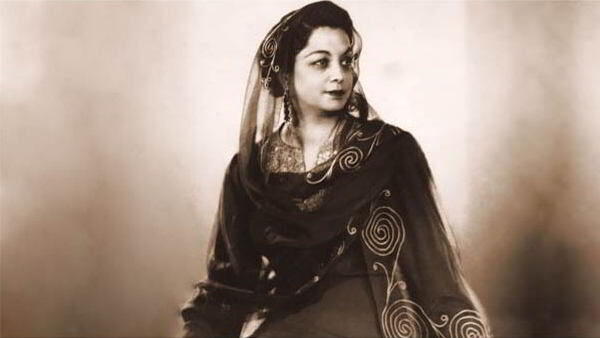
Ra’ana Liaquat along with her husband was amongst the most powerful and influential politicians at the time of partition. She also remained a prominent stateswoman from the start to the end of the Cold War. She was instrumental in the Pakistan movement and was ever-present in the executive committee established by Jinnah.
After the death of her husband, who was the first Prime Minister of Pakistan, she went on a more hands-on approach to her career in politics. She focused greatly on the rights of women in the country; she was also tasked with dealing with the many pertinent issues after the partition. Amongst the most pressing of these was the refugee problem, millions of refugees came to Pakistan from India and Afghanistan after 1947.
Her influence continued to grow in the 70s when she was part of Bhutto’s government, a secular government that aimed to eradicate poverty, hunger, and homelessness. She served as one of the chief advisors to Bhutto, previously an economist she advised Bhutto on many economic issues.
Begum Ra’ana continued to serve the country, however, in her later years, she focused solely on the social and economic rights of women. For this, she set up numerous committees and highlighted important issues to the NA.
Her death in 1990 was met with extreme grief by the populace, known as an intelligent politician and kind soul; and she was given a full military funeral. She conquered many “firsts” for Pakistani women throughout her career. For her tireless efforts for the socio-political rights of the masses, she was given the title of the “Mother of Pakistan”.
4. Shahida Malik
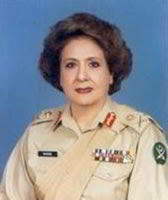
In the year 2002, Brigadier Shahida Malik made history by becoming the first woman in Pakistan’s history to be made the Major General of the Pakistan Army. Trained as an army medic and an on-field combat officer, Shahida is the first woman who achieved the rank of a two-star general officer not only in Pakistan but also in the entire Muslim world.
Nicknamed “The Lady General” Shahida is amongst only a handful of female officers in the Pakistan Army where most of the female officers are serving their country in the nursing and medical corps.
In 2002, she was selected along with 27 other officers for the prestigious rank of Major General in the armed forces. The selection board which deliberated that year had to choose between 132 brigadiers; of the 27 selected Shahida Malik was the only female. She was directly responsible for the running of about 31 hospitals in addition to her other duties, she retired in 2004.
Her contribution to the army has aided in shattering long-standing taboos over recruitment in the army, and her lifetime work in the armed forces has resulted in numerous honors being bestowed on her.
3. Ayesha Farooq
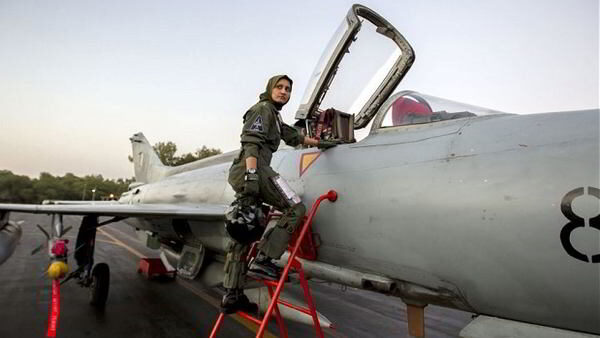
Ayesha Farooq holds the distinct honor of being the first ‘qualified for battle’ fighter pilot in the Pakistan Air Force. She is also the first female fighter pilot in the entire Muslim world. She flies the Mach 2 capable F7PG fighter jet.
The twenty-seven-year-old was born in the city of Bahawalpur, which is a small city in Central Punjab. She had to combat many demoralizing external factors before finally achieving her dream, at the forefront of this was pressure from her family.
Ayesha belongs to a conservative household; it was her mother who discouraged her from entering what is perceived to be a male-only field. However, Ayesha persevered against long-standing social taboos and pursued her dream of representing her country.
Due to her position in the air force, scores of women are now encouraged to follow their aspirations without the fear of condemnation. According to reports, there are now three hundred and sixteen women in the Air Force compared to only a hundred-five years ago. Ayesha Farooq is not only a symbol of the direction where the country is going, but she is an idol that young boys and girls alike can look up to.
Note: In addition to Ayesha there are several other battle-ready female fighter pilots in the Pakistan Air Force.
2. Benazir Bhutto
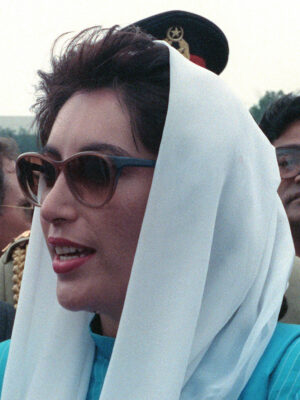
Probably the most famous Pakistani woman in the Western world, Benazir Bhutto was from a very young age groomed to lead. The daughter of the famous Zulfikar Ali Bhutto, the founder of the leftist PPP party, Benazir was cast into the spotlight from a very young age. Benazir thrust herself into the political scene fresh from graduating from Oxford; many colleagues commented that she was destined to change the fortunes of the country.
In the years following the assassination of her father, Benazir became the leader of the PPP; this was a revolutionary step as she became the first woman to head a major political party in Pakistan. Known for her unwavering ethics and astute political know-how, Bhutto was revered by all strata of society. Her views of the future of Pakistan revolved predominantly around the idea of secularism and industrial growth. Appreciated as an unbelievable orator, Bhutto had a magnetic personality that boded very well with the voters.
She became the first Muslim woman in Asia to become the head of the country, coming to power in 1988. Her second term in office, however, had to face some major roadblocks, the brunt of them caused by the unpredictable economic climate. In 1997 charges of corruption and fraud were levied against her, this forced her out of power, leading to her exile to Dubai in 1999.
In 2007, she agreed to a deal with the then-president, all charges were dropped against her and she returned to the country. However, tragically while delivering a speech at a political rally, Bhutto was allegedly shot at from close range by a still unidentified assailant; she died a few hours later in the Hospital.
Benazir was revered in society, given the nicknames “The Iron Lady” to “BB”, she played an instrumental role in the history of the country. Like her father she possessed the power to lead a nation, she was charismatic, hard-working, and intelligent. Even after her death, chants of Aaj Bhi Bhutto Zinda Hay (Even today Bhutto is alive) reverberate around every time her political party holds a march.
Thousands upon thousands of mourners descended upon her burial place to pay their respects to Benazir, today her grave has become a virtual mausoleum that supporters periodically visit to pay their respects.
1. Fatima Jinnah
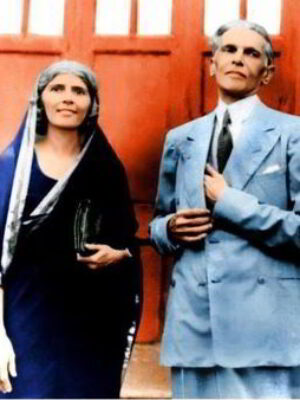
The country of Pakistan would not have been possible without the tireless efforts of Fatima Jinnah, also known as Madar-e-Millat (Mother of the Nation). Trained as a dental surgeon, early on in her career she abandoned this field and took a keen interest in politics. Like her brother, Muhammad Ali Jinnah, Fatima was incredibly likable and at times frustratingly stubborn.
The two-nation theory which was passed by Sir Syed had no stronger supporter than Fatima. A leader of the All India Muslim League, she was a strong advocate against the British Raj and did not agree with the communities of the Muslims and Hindus living together in a united India. On the contrary, she devoted her entire life to the liberation of the Indian Muslims against oppression, playing a key part in the formation of Pakistan.
After the partition, her brother founded Pakistan’s Women’s Association, which aimed to help rehabilitate the refugees of the partition. The largest city in the country Karachi alone housed over one and a half million refugees after 1947. Fatima Jinnah was in charge of coming up with solutions to the refugee problem, she also was a regular visitor to refugee camps and empathized with the plight of the people.
She was at the side of her brother on his deathbed, being amongst the few people who knew about the state of his health. Muhammad Jinnah had been a long-time sufferer of Tuberculosis; he hid this fact from the public eye because he felt that if disclosed, it would jeopardize the chances of Pakistan gaining independence.
She did not remain politically active until 1965 when she lost an extremely controversial election that sent shockwaves around the country. It was alleged that the winner of the election, Ayub Khan, engaged in widespread rigging which won him the election.
East Pakistan, modern-day Bangladesh, was appalled and many Bengalis took to the streets to protest the undemocratic appointment of Ayub Khan. Known for her political and philanthropic work, Fatima Jinnah was one of a kind. Without her constant support for her brother, coupled with her steely determination and political know-how, the dream of an independent Muslim state would never come to fruition.
Honorable Mentions
The following individuals also deserve a mention in our list of great women who changed Pakistan forever:
- Samina Baig (the first Pakistani and the youngest Muslim woman to climb Mount Everest)
- Begum Mahmooda Salim Khan (West Pakistan’s first woman cabinet minister)
- Shaista Suhrawardy Ikramullah (the first woman elected member of the Constituent Assembly in 1947)
Feel free to share a few more influential Pakistani women in the comments section below!